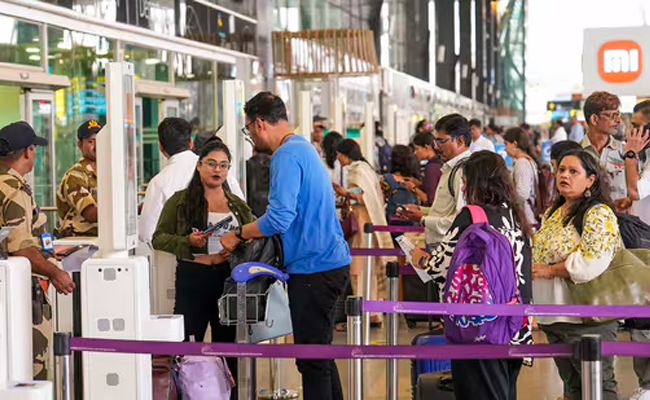Washington, June 23 : The US Supreme Court has ruled that law enforcement in most cases has to obtain a warrant in order to search and seize long-term cell phone records that would show a person's location.
In a 5-4 ruling on Friday, the court held that the Fourth Amendment's protections against an unreasonable search protects people from having the government acquire their cell-site records from wireless providers in run-of-the-mill criminal investigations, reports The Hill magazine.
Chief Justice John Roberts sided with the court's four liberal justices, Ruth Bader Ginsburg, Stephen Breyer, Sonia Sotomayor and Elena Kagan, to make up the majority.
Justice Anthony Kennedy dissented along with conservative Justices Clarence Thomas, Samuel Alito and Neil Gorsuch.
The ruling marked a major win for privacy rights in the digital age.
The plaintiff in the case was Timothy Carpenter, who was arrested in April 2011 for several armed robberies in Detroit, reports Efe news.
Carpenter was sentenced to 116 years in prison, as he was considered to be the mastermind of a group of thieves and the person responsible for purchasing firearms for the group.
Prosecutors had asked Carpenter's wireless provider to hand over his cell phone records, which allowed them to follow his location during 127 days and determine that he was near the stores that were robbed.
The Supreme Court ruling, written by Chief Justice Roberts, sides with Carpenter and declines "to grant the state unrestricted access to a wireless carrier's database of physical location information".
According to the ruling, the government will generally need a warrant to obtain cell phone records, although some exceptions are possible, as when a suspect is on the run or is putting others in danger.
Let the Truth be known. If you read VB and like VB, please be a VB Supporter and Help us deliver the Truth to one and all.
Bengaluru (PTI): Two-time Olympic medal-winning Indian badminton star P V Sindhu, who was stranded in Dubai due to closure of airspace in the Gulf region, has returned to the country after pulling out of the All England Championships in Birmingham.
Sindhu posted on X to announce that she is back in the city.
"Back home in Bangalore and safe. The last few days have been intense and uncertain, but I'm truly grateful to be back to my house," she posted.
"A heartfelt thank you to the incredible ground teams, Dubai authorities, airport staff, immigration, and every single person who stepped up and took such good care of us during a very difficult time. The empathy and professionalism meant more than words can say.
ALSO READ: Sonia slams Modi govt's silence on Khamenei killing, demands debate in Parliament
"For now, it's time to rest, reset, and figure out the next steps," she added.
The former world champion was on her way to Birmingham via Dubai, when she was stranded after the flight operations were suspended in the Gulf region following the US and Israeli bombing of Iran.
Iran subsequently retaliated, hitting Dubai as well.
"Moments like these remind you how fragile normal life really is," she had posted on February 28 while revealing some details of her ordeal, which included an explosion near her place of stay.
She had described the experience as "extremely tense and scary moment" for her and her team, including Indonesian coach Irwansyah Adi Pratama.
Back home in Bangalore and safe 🙏
— Pvsindhu (@Pvsindhu1) March 3, 2026
The last few days have been intense and uncertain, but I’m truly grateful to be back to my house. A heartfelt thank you to the incredible ground teams, Dubai authorities, airport staff, immigration, and every single person who stepped up and…





